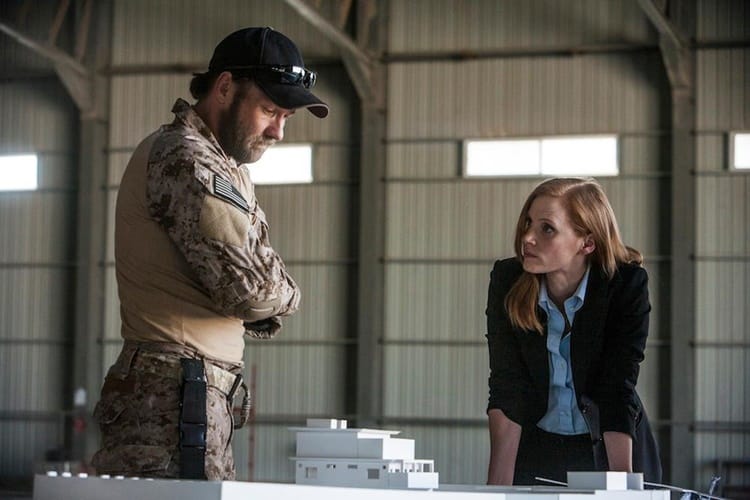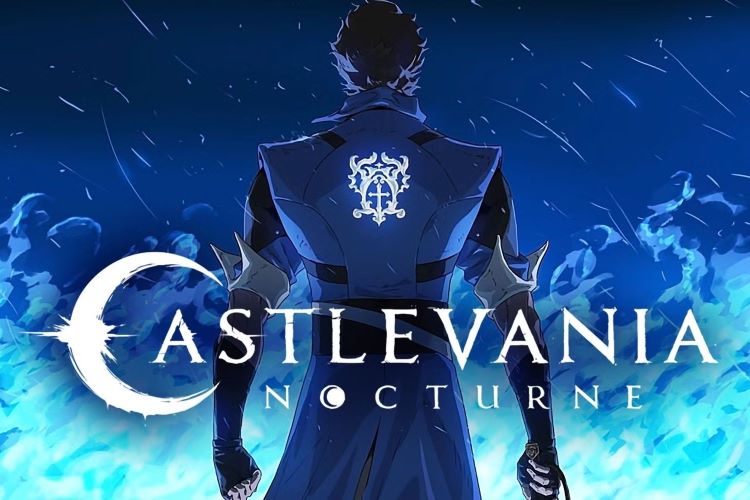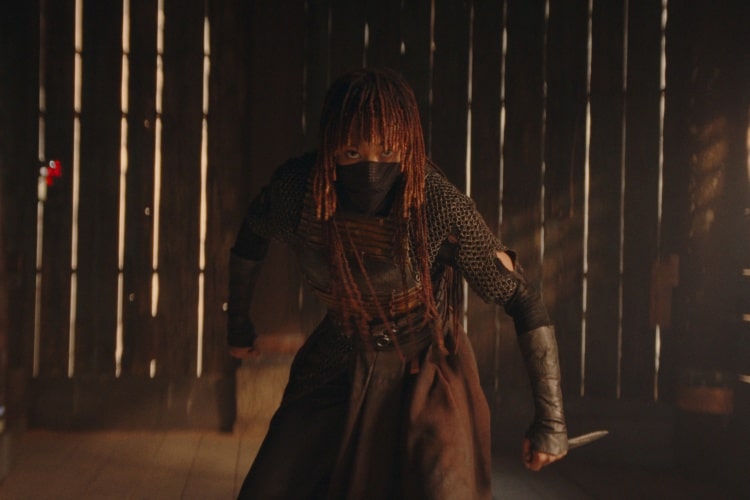
A Means to What End?
Main Cast: Jessica Chastain, Reba Kateb, Jason Clarke
Director: Kathryn Bigelow
A couple of weeks after seeing Zero Dark Thirty I’m more conflicted and confused about the movie than when we walked out of the theater. It’s undeniably ambitious, but I’m still on the fence as to how effective it is as a piece of filmmaking.
We all know the basics of the narrative, which spans a decade from the 9-11 attacks through the search for and ultimate killing of bin Laden. There’s obviously no surprise ending. So what is the point of this film? Is it a character study, a closer look at those mostly faceless, nameless bureaucrats, spooks, and soldiers who painstakingly and tirelessly hunted down the world’s #1 terrorist and most wanted man? Or is it more plotdriven, showing us an alternative or previously unknown angle on a well-known story?
Well, therein lies the rub: by attempting to give us both – or neither, maybe – ZDT comes up tantalizingly short on all counts. Director Kathryn Bigelow provides a multifaceted, kaleidoscopic portrayal of a big story, but her vision is limited to superficialities, mostly, and generates as many “Huh?” questions as answers.
Along with the climactic raid sequence, the longest and most compelling piece of thestory comes in the controversial torture scenes early in the film. French actor Reda Kateb plays Ammar, an Al Qaeda operative captured in Tora Bora not long after 9/11. World-weary CIA agent Dan, portrayed by Australian actor Jason Clarke, tortures Ammar repeatedly, but without success. When Ammar finally gives the CIA a small lead with big implications, it’s not so much because they’ve tortured him, but because they’ve tricked him. Kateb and Clarke turn in complex, nuanced performances: although both are guilty of abhorrent acts, they manage to invest their characters with humanity, with depth, creating interest and sympathy in their respective roles.
The ostensible heroine of the story, CIA operative Maya (Jessica Chastain) is mostly a bystander in these scenes, reduced to a few reaction shots. Despite more camera time as the story proceeds, Maya remains a frustratingly blank slate. The sweep of ten years, the months and years of frustration, warfare, and patient investigation, are only broadly suggested, and made clear only by explicit subtitled dates. Beyond her obsession with the mission, we never learn much about Maya, nor do we care all that much. Other characters – many of them played by major actors in puzzlingly brief cameos – appear, drop a few pithy lines, then disappear.
It was satisfying to watch the story played out to its well-known conclusion, but only in the way that solving a puzzle is satisfying. In retrospect it feels as though this story could have been equally effective as a written piece – there’s very little content that takes advantage of film’s unique qualities. The movie is well-acted, technically proficient, and exciting, and I was certainly glued to my seat throughout its nearly two and a half hour duration. It has provided fodder for several lengthy and lively discussions about the events and about the film itself. But honestly, I’m not entirely clear what message Bigelow intended to convey to us. ZDT lacks some essential cinematic element that prevents it from being a great film.
And that, at the end of the day, is at the heart of my disappointment in this movie. It’s a curiously bloodless narration of what has been arguably the most important geopolitical event of our lives.






Leave a Reply